Related Research Articles
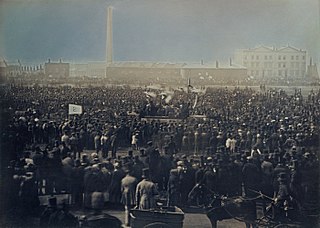
Chartism was a working-class movement for political reform in the United Kingdom that erupted from 1838 to 1857 and was strongest in 1839, 1842 and 1848. It took its name from the People's Charter of 1838 and was a national protest movement, with particular strongholds of support in Northern England, the East Midlands, the Staffordshire Potteries, the Black Country and the South Wales Valleys, where working people depended on single industries and were subject to wild swings in economic activity. Chartism was less strong in places, such as Bristol, that had more diversified economies. The movement was fiercely opposed by government authorities, who finally suppressed it.

Feargus Edward O'Connor was an Irish Chartist leader and advocate of the Land Plan, which sought to provide smallholdings for the labouring classes. A highly charismatic figure, O'Connor was admired for his energy and oratory, but was criticised for alleged egotism. His newspaper Northern Star (1837–1852) was widely read among workers, becoming the voice of the Chartist movement.
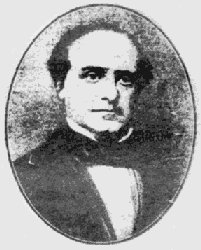
Ernest Charles Jones was an English poet, novelist and Chartist. Dorothy Thompson points out that Jones was born into the landed gentry, became a barrister, and left a large documentary record. "He is the best-remembered of the Chartist leaders, among the pioneers of the modern Labour movement, and a friend of both Marx and Engels."

Joseph Sturge was an English Quaker, abolitionist and activist. He founded the British and Foreign Anti-Slavery Society. He worked throughout his life in Radical political actions supporting pacifism, working-class rights, and the universal emancipation of slaves. In the late 1830s, he published two books about the apprenticeship system in Jamaica, which helped persuade the British Parliament to adopt an earlier full emancipation date. In Jamaica, Sturge also helped found Free Villages with the Baptists, to provide living quarters for freed slaves; one was named Sturge Town in his memory.

The London Working Men's Association was an organisation established in London in 1836. It was one of the foundations of Chartism, advocating for universal male suffrage, equally-populated electoral districts, the abolition of property qualifications for MPs, annual Parliaments, the payment of MPs, and the establishment of secret ballot voting. The founders were William Lovett, Francis Place and Henry Hetherington. They appealed to skilled workers rather than the mass of unskilled factory labourers. They were associated with Owenite socialism and the movement for general education.
Owenism is the utopian socialist philosophy of 19th-century social reformer Robert Owen and his followers and successors, who are known as Owenites. Owenism aimed for radical reform of society and is considered a forerunner of the cooperative movement. The Owenite movement undertook several experiments in the establishment of utopian communities organized according to communitarian and cooperative principles. One of the best known of these efforts, which were largely unsuccessful, was the project at New Harmony, Indiana, which started in 1825 and was abandoned by 1829. Owenism is also closely associated with the development of the British trade union movement, and with the spread of the Mechanics' Institute movement.

William Lovett was a British activist and leader of the Chartist political movement. He was one of the leading London-based artisan radicals of his generation.

George Julian Harney was a British political activist, journalist, and Chartist leader. He was also associated with Marxism, socialism, and universal suffrage.
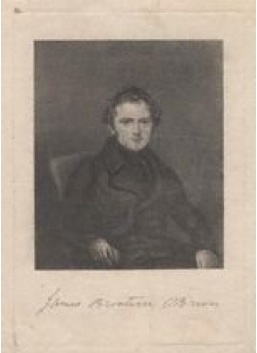
James Bronterre O'Brien was an Irish Chartist leader, reformer and journalist.

Henry Hetherington was an English printer, bookseller, publisher and newspaper proprietor who campaigned for social justice, a free press, universal suffrage and religious freethought. Together with his close associates, William Lovett, John Cleave and James Watson, he was a leading member of numerous co-operative and radical groups, including the Owenite British Association for the Promotion of Co-operative Knowledge, the National Union of the Working Classes and the London Working Men's Association. As proprietor of The Poor Man's Guardian he played a major role in the "War of the Unstamped" and was imprisoned three times for refusing to pay newspaper stamp duty. He was a leader of the "moral force" wing of the Chartist movement and a supporter of pro-democracy movements in other countries. His name is included on the Reformers' Memorial in Kensal Green Cemetery.

The Northern Star and Leeds General Advertiser was a chartist newspaper published in Britain between 1837 and 1852, and best known for advancing the reform issues articulated by proprietor Feargus O'Connor.

Joshua Hobson (1810–1876) was a British Chartist and Tory Radical who was the first publisher of the Book of Murder, a pamphlet attacking the 1834 Poor Law Amendment Act. In 1838-1844 he was the publisher of the Chartist newspaper Northern Star.
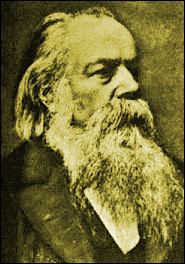
Henry Vincent was active in the formation of early Working Men's Associations in Britain, a popular Chartist leader, brilliant and gifted public orator, prospective but ultimately unsuccessful Victorian member of parliament, and later an anti-slavery campaigner.
John Cleave was a British, London based Chartist leader, a printer and newspaper publisher.
Richard Spurr (1800–1855) was a Cornish cabinet maker and lay preacher who was imprisoned for his part in leading the political movement Chartism.

The Shire Hall in Agincourt Square, Monmouth, Wales, is a prominent Grade I listed building in the town centre. It was built in 1724, and was formerly the centre for the Assize Courts and Quarter Sessions for Monmouthshire. In 1839–40, the court was the location of the trial of the Chartist leader John Frost and others for high treason for their part in the Newport Rising. The building was also used as a market place. The Shire Hall is owned by Monmouthshire County Council and has audiovisual guides for visitors to Courtroom 1. It is currently used as a Tourist Information Centre and as the offices for Monmouth Town Council, and is open to the public in part.
Chartism originated in Wales in Carmarthen under the influence of Hugh Williams, a solicitor and radical reformer. Williams claimed he "got up the first radical meeting in south Wales" in the autumn of 1836 when he founded Carmarthen Working Men's Association. This followed on from the foundation the previous year of the London Working Men's Association by William Lovett and Henry Hetherington, Hetherington was a friend of Hugh Williams and is likely to have influenced his activities in south Wales. The People's Charter, embodying six points, was published in May 1838, with an address by Lovett and Hetherington. It became the focus of widespread meetings in support of its objectives throughout Britain. The People's Charter was later published in Welsh increasing the movement's appeal in Welsh-speaking areas. Chartism in Wales reached its climax in November 1839 with the Newport Rising and subsequent treason trial of Chartist leaders.
Richard Moore (1810–1878) was an English radical politician. He was a moderate Chartist, and heavily involved in the campaign against "taxes on knowledge".
The National Hall, Holborn was a building in High Holborn, London, owned in the 1840s by the National Association for Promoting the Political and Social Improvement of the People. The lease of 242A High Holborn was taken by the National Association in January 1842, for the "Hall of the National Association", which was fitted out in the second half of 1842.
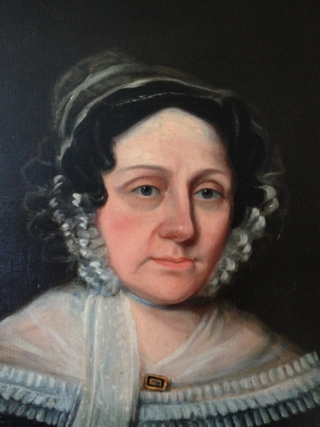
Alice Mann was a Leeds-born radical and publisher. Her husband was arrested on suspicion of involvement in an armed uprising and she served a week long and a six month sentence for selling newspapers without paying the required tax.
References
- ↑ London Chartist 1838-1848 by David Goodway (Cambridge University Press, 2002), ISBN 0-521-89364-X - Page 40
- ↑ History of the Chartist Movement by Julius West p 159-160
- ↑ Lovett, L&S, II, pp.264-5;Northern Star, 18 Sep 1841; Add. MS. 37,774.